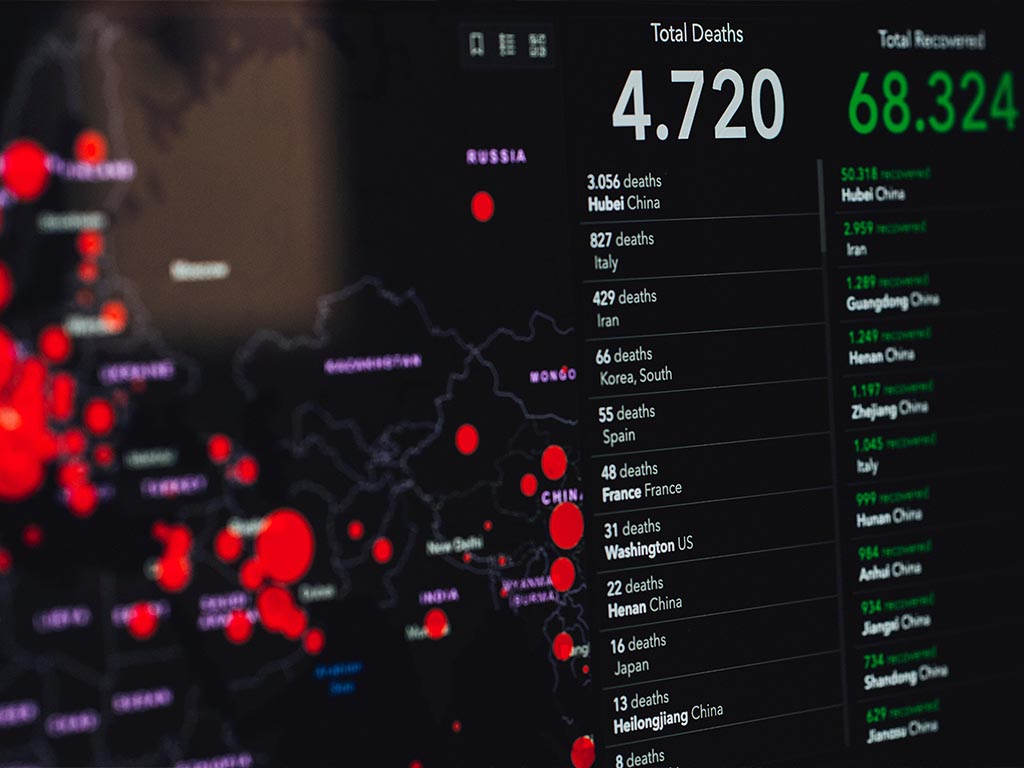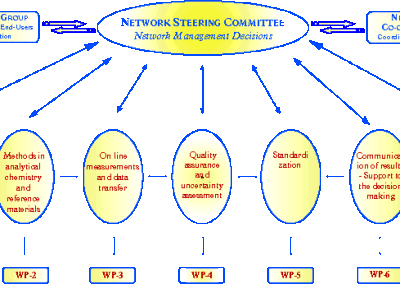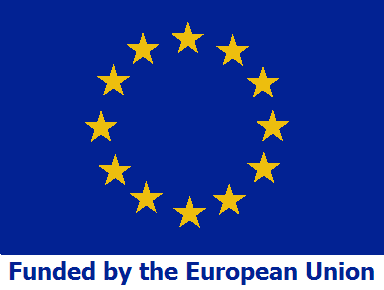METROPOLIS
Metrology in Support to Precautionary Sciences and Sustainable Development Policies (METROPOLIS)
Categorie: Cambiamenti e Transizione | Concluso | Internazionali | Rende | Trasferimento delle conoscenze

Finanziamento: European Commission, DG Research – 5th Framework Programme
Periodo: ---
Budget totale progetto:---
Budget totale CNR IIA:---
Responsabile Scientifico: N/A
Abstract del progetto
Thirty two institutes, universities, or enterprises from 17 countries, with the co-operation of four pan-European organizations, including CEN (the European standards Organization), and of two Institutes of the Joint Research Center of the EC are going to pave the way towards the creation of the European Research Area in the field of environmental and precautionary sciences. The network will play a major role in the successful design and implementation of sustainable development policies.
The 24 month project, funded under the Competitive and Sustainable Growth Programme of the Vth European Research Programme, co-ordinated by INERIS, the French National Institute responsible for environmental risks, is a unique attempt to address the environmental issues with a fully transversal and inter-disciplinary approach. Across the environment’s compartments, air, water, soil it will cover all the way from the metrology questions related to the performance of measurement and sampling strategies, to the problems of effective transmission, processing and modelling of measurement results into databases and geographic information systems. The final objective will be the optimal expression and correct interpretation of results, in the light of estimated uncertainties. It will also respond to the requirements of decision makers, or where necessary deliver the information needed by the citizens.
There are several benefits to be drawn from this approach. It will accelerate and expand the diffusion of state of the art scientific practice in environmental monitoring across Europe, and particularly in future Member States. It will contribute to identify rapidly knowledge gaps or simply technological or methodological demands and facilitate the emergence of coherent research projects to fulfil the needs.
It will assure the availability of a much needed force of expertise, both harmonious and aware of the overall need of coherence of the European-wide environmental scientific systems. It will become a major player in the efficient development and operational implementation of European policies, technical or economic regulations, or standards. In this context, the Directorate General for Environment of the European Commission will also be following closely the evolution of the project, and seek the support of the METROPOLIS network for some priority strategic developments(1).
The scientific organizations which play a leading role in the seven work-packages of the project will also seek to foster a Network of Excellence within the structure of the incoming VI Research Framework Programme, in order to pursue the fulfilment of Europe’s science and expertise needs in the field of environmental monitoring.
There are several benefits to be drawn from this approach. It will accelerate and expand the diffusion of state of the art scientific practice in environmental monitoring across Europe, and particularly in future Member States. It will contribute to identify rapidly knowledge gaps or simply technological or methodological demands and facilitate the emergence of coherent research projects to fulfil the needs.
It will assure the availability of a much needed force of expertise, both harmonious and aware of the overall need of coherence of the European-wide environmental scientific systems. It will become a major player in the efficient development and operational implementation of European policies, technical or economic regulations, or standards. In this context, the Directorate General for Environment of the European Commission will also be following closely the evolution of the project, and seek the support of the METROPOLIS network for some priority strategic developments(1).
The scientific organizations which play a leading role in the seven work-packages of the project will also seek to foster a Network of Excellence within the structure of the incoming VI Research Framework Programme, in order to pursue the fulfilment of Europe’s science and expertise needs in the field of environmental monitoring.
The quality and security of the environment, and the minimisation of its impact on public health and safety constitute key expectations of European citizens, and a precondition for the successful implementation of all sustainable growth policies. In each European state, a number of research institutes, universities and private structures are currently involved in developing techniques, technologies and methodologies in order to provide the measurement capacity which is necessary in order to implement public policies and regulations, to give companies the visibility they need on their achievements, and to provide feedback information to the public (e.g.: scale of atmospheric pollution in a given city).
The 38 METROPOLIS partners have identified the following five key objectives for a 2 year thematic network project:
Identify and promote state of the art techniques and methodologies, through a bench marking approach carried out in specific working groups of experts;
Provide guidance to practitioners, and disseminate reference information and data, in priority through electronic media (web-site, data bases, …);
Improve the level of mutual confidence between all players involved, and the dialogue between scientists and end-users of measurement results, by exploiting the transversal nature of this Network, and the complementarity of its membership;
Identify gaps in knowledge, technologies, and methodologies, and facilitate where appropriate the elaboration of research programmes in order to fill such gaps. Working groups (WG) will hold seminars on these issues, and, reports to EC authorities will be one of the outputs of this activity;
Progress towards the achievement of the European Research Area, by consolidating the links between the keys European lnstitutes and universities, and establishing the feasibility of a “Network of Excellance” under the rules of the future Framework Programme VI. A report and a proposal will be produced at the end of the 2 year period;
Six priority areas have been chosen for the concrete implementation of these objectives:
Biomonitoring techniques;
Analitycal chemistry and reference materials;
On-line measurements and data transfer;
Quality assurance and uncertainty assessment;
Standardization;
Communication of measurement results and support to decision making processes.
The 38 METROPOLIS partners have identified the following five key objectives for a 2 year thematic network project:
Identify and promote state of the art techniques and methodologies, through a bench marking approach carried out in specific working groups of experts;
Provide guidance to practitioners, and disseminate reference information and data, in priority through electronic media (web-site, data bases, …);
Improve the level of mutual confidence between all players involved, and the dialogue between scientists and end-users of measurement results, by exploiting the transversal nature of this Network, and the complementarity of its membership;
Identify gaps in knowledge, technologies, and methodologies, and facilitate where appropriate the elaboration of research programmes in order to fill such gaps. Working groups (WG) will hold seminars on these issues, and, reports to EC authorities will be one of the outputs of this activity;
Progress towards the achievement of the European Research Area, by consolidating the links between the keys European lnstitutes and universities, and establishing the feasibility of a “Network of Excellance” under the rules of the future Framework Programme VI. A report and a proposal will be produced at the end of the 2 year period;
Six priority areas have been chosen for the concrete implementation of these objectives:
Biomonitoring techniques;
Analitycal chemistry and reference materials;
On-line measurements and data transfer;
Quality assurance and uncertainty assessment;
Standardization;
Communication of measurement results and support to decision making processes.
INERIS – FRANCE – COORDINATORE
University of Munich – GERMANY
GSF – GERMANY
JSI – SLOVENIA
CNR Institute of Environmental Pollution (CNR-IIA)- ITALY
University of Pau – FRANCE
TUWIEN – AUSTRIA
University of Münster – GERMANY
HSL – UK
NILU – NORWAY
NPL – UK
UBA – GERMANY
CEN – BELGIUM
EI – JRC
RISOE – DENMARK
University of Munich – GERMANY
GSF – GERMANY
JSI – SLOVENIA
CNR Institute of Environmental Pollution (CNR-IIA)- ITALY
University of Pau – FRANCE
TUWIEN – AUSTRIA
University of Münster – GERMANY
HSL – UK
NILU – NORWAY
NPL – UK
UBA – GERMANY
CEN – BELGIUM
EI – JRC
RISOE – DENMARK
Nicola Pirrone



